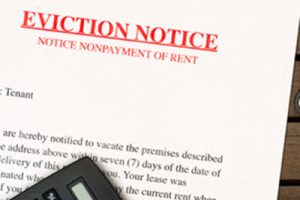Can Bankruptcy Stop Eviction?

Maybe yes and maybe no. With regard to eviction, timing is everything. The rule itself is linked to eviction procedure in a certain jurisdiction. In most areas, eviction is a three-step process: notice, eviction lawsuit, and execution of judgment. If a Chicago bankruptcy attorney intervenes early enough, this debt-relief procedure can stop eviction.
Bankruptcy does a lot more than stop possible eviction. Bankruptcy also gives distressed debtors a financial fresh start. Chapter 7 quickly eliminates most unsecured debts, and Chapter 13 gives debtors up to five years to erase debt delinquency.
Bankruptcy and the Automatic Stay
As soon as debtors file their voluntary petitions, Section 362 of the Bankruptcy Code usually takes effect. The Automatic Stay prohibits adverse creditor actions like:
- – Foreclosure,
- – Wage garnishment,
- – Repossession, and
- – Collector harassment.
Typically, the Automatic Stay remains in effect for the entire bankruptcy period. Generally, creditors can only get around the stay if they obtain special permission from the bankruptcy judge. Such permission is not easy to obtain.
Furthermore, debtors need not present any evidence in this matter. They need not show fraud, mistake, negligence, or anything else. Simply filling their petitions gives them the protection that civil court judges often refuse to provide.
The New Bankruptcy/Lease Eviction Rule
The 2005 bankruptcy reforms substantially changes the way the Automatic Stay applies to pending evictions. Let’s go back to the aforementioned three-step eviction process.
When commercial or residential tenants fall behind on their rent, landlords usually send delinquency notices, post eviction notices, or take other such actions. These actions are not legally enforceable. They simply set the stage for the next two phases.
If the tenant files bankruptcy at this stage, even if the notice period has expired, the Automatic Stay applies. The landlord can only proceed with eviction if the tenant threatened the property in some way (e.g. a statement like “I’m going to burn down the house”).
The second stage is the eviction lawsuit. Typically, these actions occur in a Justice of the Peace court. Once again, the Automatic Stay usually applies unless the landlord can prove that the property is somehow at risk. Filing bankruptcy may stop an eviction even if the judge found in favor of the landlord at a hearing. That’s especially true if the tenant appealed the decision.
After the judgement becomes final, either at the JP level or after an appeal, judges must sign judgement executions. These documents are separate. If a judge has signed an execution, the Automatic Stay may not apply. There is an escrow payment loophole, but it is not available in all cases.
In some landlord/tenant situations, the above discussion may be irrelevant. That’s because not all leases are leases. They may be legally unenforceable for some reason. Or, the contract may not meet all the legal requirements of a lease.
Chicago Bankruptcy Attorneys and Debt Negotiation
Even if bankruptcy does not stop eviction, a lawyer can still help you retain the property you rented.
Lawyers can do more than review contracts to determine their validity. They can also negotiate with landlords and other creditors to obtain more favorable terms. These negotiations are often successful, especially if there is any evidence of wrongdoing or negligence which an attorney can use as negotiating leverage.
Count on Dedicated Lawyers
Bankruptcy may help stop a pending eviction. For a free consultation with an experienced Chicago bankruptcy attorney, contact the Bentz Holguin Law Firm, LLC. Convenient payment plans are available.


